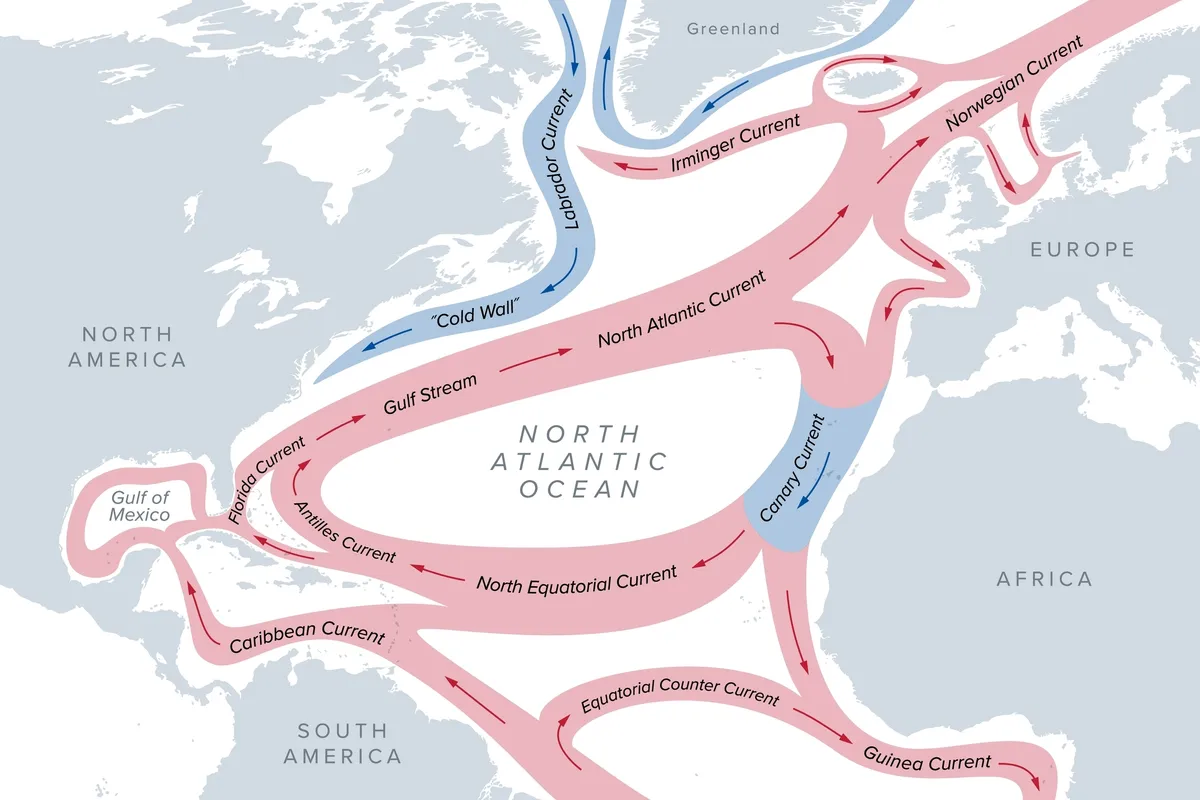Atlantic Ocean’s “Lifeline” at Risk: Scientists Sound Alarm
A coalition of 44 esteemed climate experts has issued a stark warning to Nordic policymakers, highlighting the precarious state of the Atlantic Meridional Overturning Circulation (AMOC). This vital ocean conveyor belt, which includes the Gulf Stream, is teetering on the brink of collapse due to escalating global temperatures.

Image credit: NOAA
The Consequences of Inaction
- Chilling Reality: A weakened AMOC would unleash extreme weather patterns and unseasonable cold snaps across Nordic nations (Denmark, Iceland, Norway, Finland, and Sweden).
- Ripple Effect: The Northern Hemisphere would face severe climate disruptions, jeopardizing agricultural stability in Northwestern Europe.
- Global Domino Effect:
- Tropical monsoon systems would migrate southward, wreaking havoc on ecosystems and food production.
- Sea levels along the American Atlantic coast would surge, imperiling coastal communities.
- Marine biodiversity would plummet, as fisheries struggle to adapt.
The Ticking Clock
- Uncertain Timelines: While the exact collapse timeline is unknown, experts caution that the AMOC’s deterioration could culminate in a catastrophic failure within decades.
- Reevaluating Risk Assessments: The scientific community is reexamining the Intergovernmental Panel on Climate Change (IPCC) projections, stressing that the likelihood of an AMOC collapse before 2100 should not be underestimated.
A Call to Urgent Action
Nordic policymakers are urged to:
- Confront the Crisis: Acknowledge the AMOC’s precarious state and its far-reaching implications.
- Mobilize Global Cooperation: Leverage international partnerships to meet the ambitious targets outlined in the 2015 Paris Agreement, limiting global warming to 1.5°C above pre-industrial levels.
Expert Insight
“The stakes are clear: inaction would condemn the planet to centuries of climate upheaval. We must act decisively to prevent this catastrophe.” – [Anonymous, representing the coalition of 44 climate experts]






